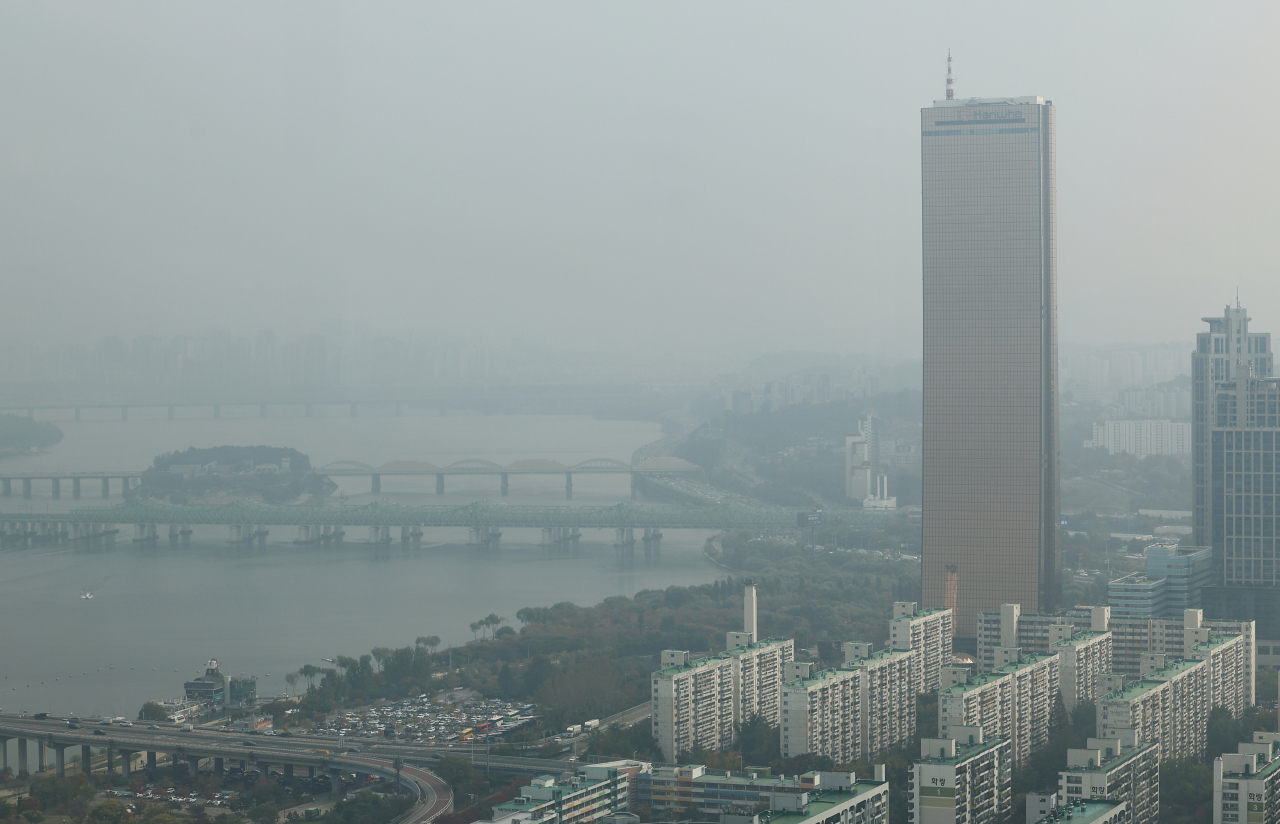 |
Fine dust blankets Seoul on Oct. 26. (Yonhap) |
Poor air quality contributed to about 1 1/2 times more premature deaths in South Korea than the average of countries of the Organization for Economic Cooperation and Development, data showed Sunday.
According to the 2023 OECD Health at a Glance report, South Korea had 42.7 premature deaths from ambient air pollution per 100,000 population in 2019. The OECD average stood at 28.9 deaths per 100,000 in 2019. In contrast, some countries, such as New Zealand, Sweden and Finland, had relatively low mortality rates, at 6.3, 6.5 and 7 per 100,000, respectively.
Premature deaths from ambient air pollution declined by 31 percent on average between 2000 and 2019; in particular, the figures for Norway and Sweden fell 72 percent and 70 percent, respectively. However, ambient air pollution still caused an estimated 29 deaths per 100,000 people on average across OECD countries as of 2019, the OECD noted.
In South Korea, the number increased 20 percent in the same period. Other countries, including Japan, Costa Rica, Chile, Mexico, Colombia and Turkey, also showed increases.
Air pollution is a significant environmental threat to public health globally, and it accounts for an estimated 7 million premature deaths every year, according to the United Nations Environment Program. Projections from the OECD see that by 2060, outdoor air pollution could be responsible for up to 9 million deaths annually.
With each breath, people inhale tiny particles that can damage their lungs, heart and brain, and cause a host of other health problems. The most dangerous of these particles include soot, soil dust and sulfates, which are fine particles 2.5 microns or less in diameter, known as PM 2.5.
Exposure to air pollutants increases the risk of developing a range of diseases. These diseases fall into three major categories: cardiovascular, respiratory and cancer.
Air pollution has been regarded as the most pressing environmental concern for many Koreans.
According to a 2020 survey conducted by the state-run Korea Environment Institute with 3,008 people around the country, 46.5 percent of respondents identified “improving air quality,” particularly against pollutants like fine dust and ozone, as the most urgent environmental problem to be addressed. Others answered with havoc from climate change -- such as heat waves, cold snaps, heavy snowfall and torrential downpours -- as the most pressing concern.
To tackle the nation's worsening air pollution problem, the Korean government announced last year that it aims to reduce the annual average density of ultrafine dust particles to 12 micrograms per cubic meter by 2032 from 18 micrograms per cubic meter tallied in 2021. Measures include supplying more zero-emission vehicles, as well as banning Grade 5 diesel vehicles, the lowest in the country's five-tier emissions standard.







